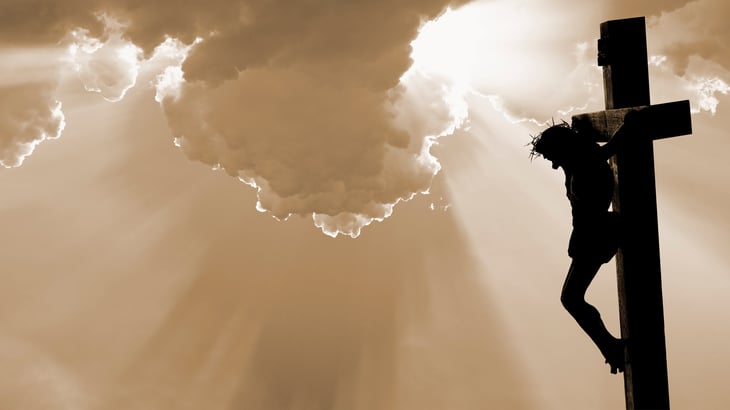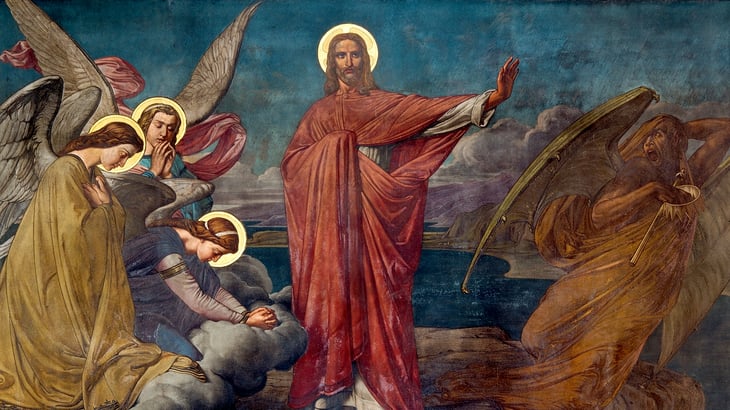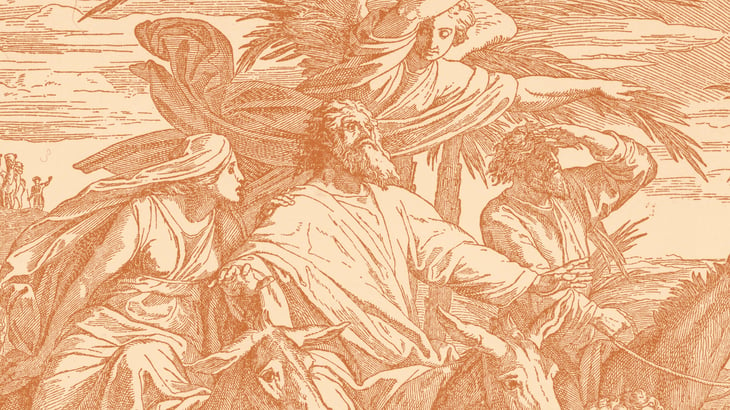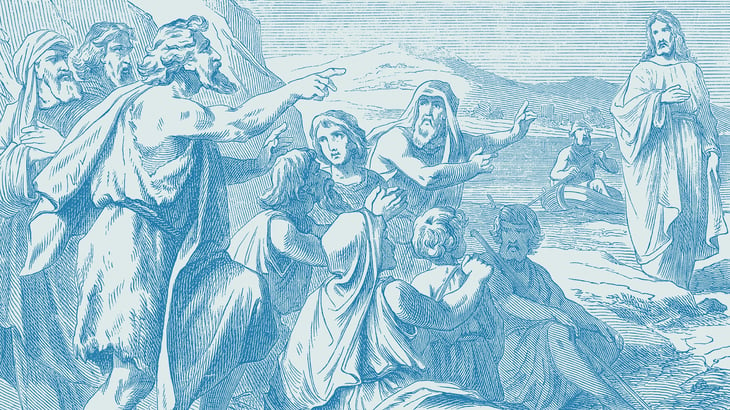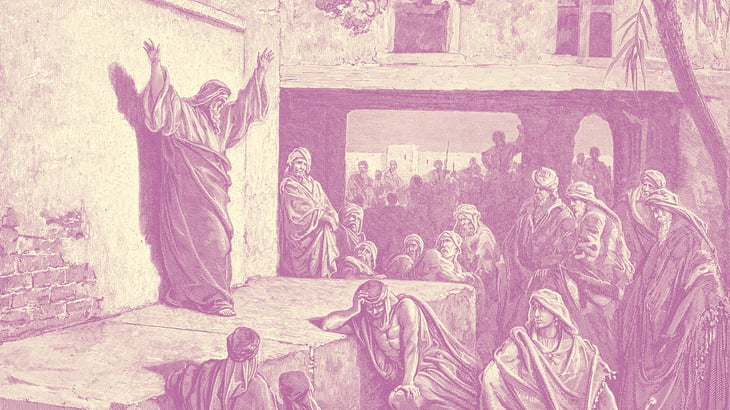Digging Deeper into Scripture: Mark 10
In Mark 10, Jesus demonstrates how He is the perfect sacrifice for all by humbly obeying God the Father through His death and resurrection.
Digging Deeper into Scripture: James 1
James, the brother of Jesus, is the author of this book. It is important to remember that James is related to Jesus by Mary, their mother, as Jesus is the Son of God, conceived by the Holy Spirit. Given that James wrote his book around the year AD 50, we know that Jesus has risen and ascended. Pentecost has taken place and the first Christians, equipped with the Holy Spirit and the ability to speak local tongues, are moving out to share the Good News of Jesus Christ. James is writing to Jewish Christians living in the diaspora, that is, the dispersion of Jews into Gentile nations. His goal is to teach wisdom to these men and women who are amid unbelievers, and perhaps more important, those who belong to pagan religions.
Exodus and God’s Law
This blog post is adapted from Lutheran Bible Companion, Volume 1: Introduction and Old Testament.
Why Is God’s Name Important?
This blog post is adapted from Blessed Be His Name by Rev. Dr. Kevin Golden.
Preaching on the Psalms
If you are a pastor, when was the last time you preached on one of the Psalms? If you are not a pastor, when was the last time you heard a sermon on one of the Psalms? Is it just me, or are the Psalms often overlooked and underused in preaching? I began to notice this several years ago and found I was not alone. Others had noticed a lack of Psalms sermons too.
Digging Deeper into Scripture: Mark 1
In this weekend’s Gospel reading, we find Jesus calling Peter, Andrew, and James and John, the sons of Zebedee, to be His disciples. Mark moves quickly through John the Baptist’s call in the wilderness, his Baptism of Jesus, and Jesus’ temptation. When John baptizes Jesus, Jesus’ Father in heaven endorses His Son with the words, “with You I am well pleased.” (Mark 1:11) After this, Jesus endures Satan’s temptation in the wilderness, proving Himself to also be the Son of Man: He resists the lure of sin, unlike Adam and Eve in the Garden of Eden, and unlike the Israelites who wandered in the wilderness for forty years (an important parallel to the forty days Jesus spent in the wilderness). Jesus calls out that the kingdom of God—His kingdom—is at hand. In this context, Jesus initiates His earthly ministry by calling the disciples with whom He will share it.
Genesis and God’s Salvation Plan
To Us a Child Is Born: Luther’s Interpretations on Isaiah 9:6–7
Christmas is a time of celebration that the Savior of the Nations is born! His name is revered throughout the earth as we rejoice in God’s promises fulfilled. Isaiah 9:6–8 is an incredibly well-known verse about Christ’s birth. Read Luther’s commentary on these verses from Luther’s Works, Volume 16: Lectures on Isaiah Chapters 1–39 below.
Digging Deeper into Scripture: John 1
Today, as we read John 1:6–8 and 19–28, we can connect the message of John the Baptist to God’s presence among the Israelites wandering in the wilderness prior to entering the Promised Land. John, Christ’s herald, is not himself the light, but he will eventually baptize the light, Jesus. This begins Jesus’ ministry, at the end of which, He will die and rise again to open the gates of heaven.
Luther’s Introduction to Micah
This post is adapted from Luther's Works, vol. 18 (Lectures on the Minor Prophets I).
When the destruction of the Jewish people was imminent, when the new age and kingdom—namely, Christ—were coming, God sent many great prophets to cry out and lament about the coming destruction of the entire people so that at least some who heard the preaching of a threatening evil might believe, be converted, and, thus converted, be saved. In this way they might delay that terrible and wretched destruction. Thus at the same time prophesied Amos, whom I regard as the first, Hosea, who must be counted after Amos, and Micah. Isaiah also prophesied at the same time, although he would have been the last of these. Now all of them prophesied about the destruction of the old people and the bringing in of a new people, about the abolition of the external kingdom and the establishment of a new spiritual kingdom which would happen through Christ.
